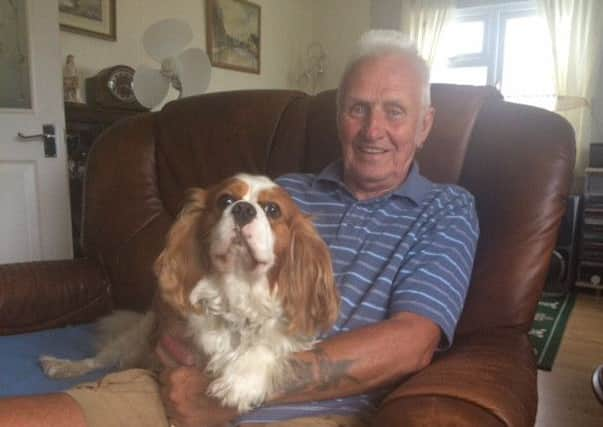Skegness man living proof of pioneering cancer trial


Raymond Hutchinson, 74, has benefitted from a quicker and more convenient radiotherapy treatment which has reduced the number of times he had to travel to Lincoln for treatment and help other sufferers across the country.
Lincoln County Hospital was one of the top recruiting hospitals involved in the trial, entering 155 patients to take part over the last 10 years.
Advertisement
Hide AdAdvertisement
Hide AdMr Hutchinson was diagnosed with prostate cancer five years ago. He said: “When I was diagnosed I was given a choice about what treatment I could have, and Dr Panades suggested that I go on the trial. I didn’t hesitate to do it,
“It is a long journey for me to travel from Skegness to Lincoln for my treatment, so it was sensible to do it in as few visits as possible. As part of the treatment you also have to drink water on your way to hospital and that sounded a bit uncomfortable. I was happy to do it in only four weeks instead of over a longer period. The results for me were excellent and I’m very pleased with the care I received and happy that this way of being treated was the right thing for me.”
The medical journal The Lancet Oncology said: “There was now enough proof the hard-and-fast treatment worked just as well and did not cause more side effects.
“For a patient, the new regime would mean 17 fewer trips to hospital.”
Advertisement
Hide AdAdvertisement
Hide AdConsultants at Lincoln County Hospital now prescribe this treatment regime for all eligible patients. Every year, nearly 250 prostate cancer patients are treated with radiotherapy in Lincolnshire.
Consultant clinical oncologist at Lincoln County Hospital, Dr Miguel Panades, said: “This is excellent for many prostate cancer patients requiring radiotherapy, but not only prostate patients can benefit. These results mean that there is more capacity to treat other patients which is saving money for the NHS, and also results in reduced waiting times.”
Director of the Lincolnshire clinical research facility, Dr Tanweer Ahmed, said: “The trial showed that, for patients with prostate cancer who fit a certain eligibility criteria, delivering 20 doses of radiotherapy over four weeks is equivalent to giving 37 doses over seven and a half weeks in terms of safety and effectiveness.
“I am delighted that United Lincolnshire Hospitals NHS Trust contributed significantly to this international clinical trial by recruiting a large number of patients from Lincolnshire, and the trial findings have been implemented across the country,”
The trial compared side effects, recurrence rates and survival data and demonstrated no significant difference for those patients fitting the criteria.